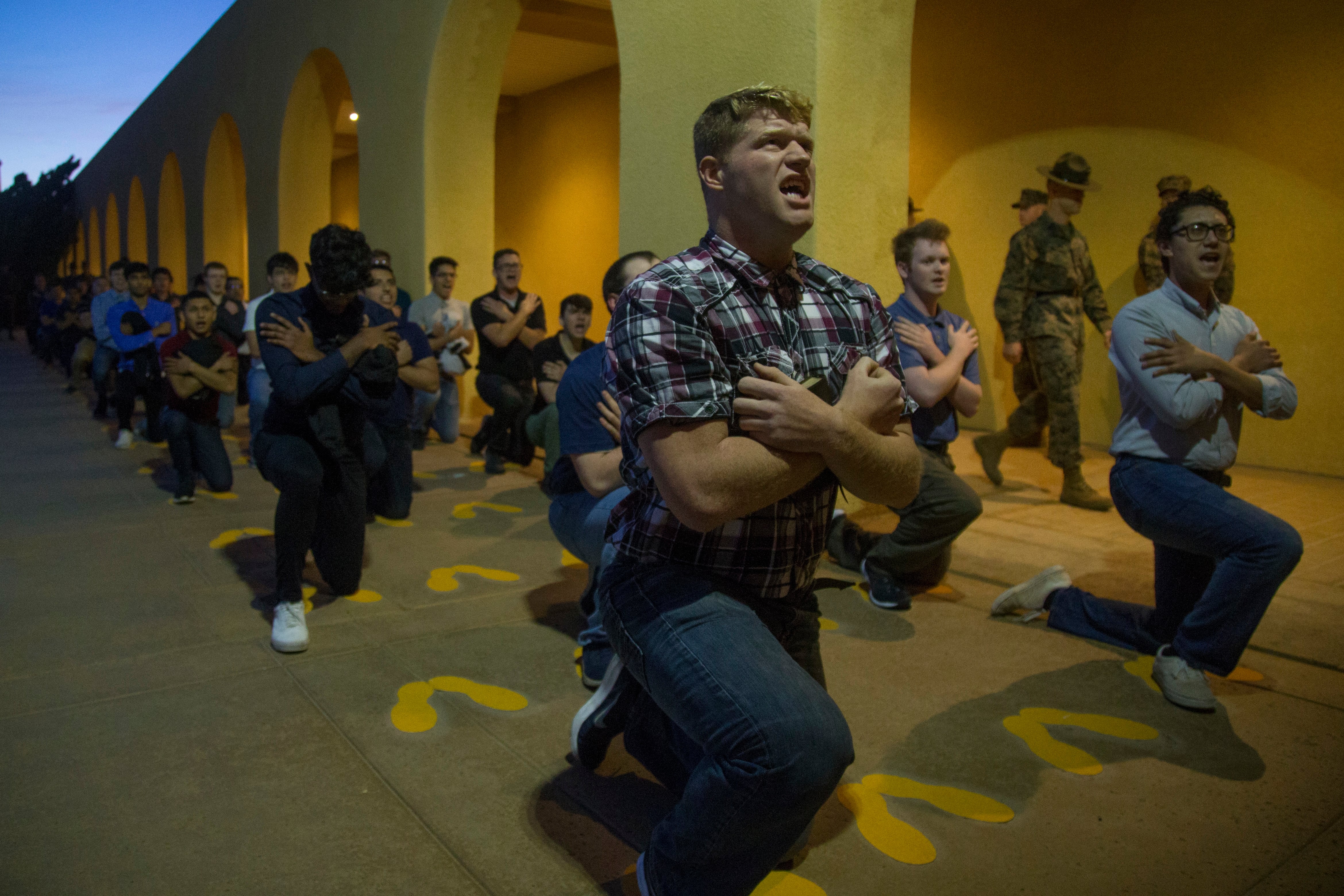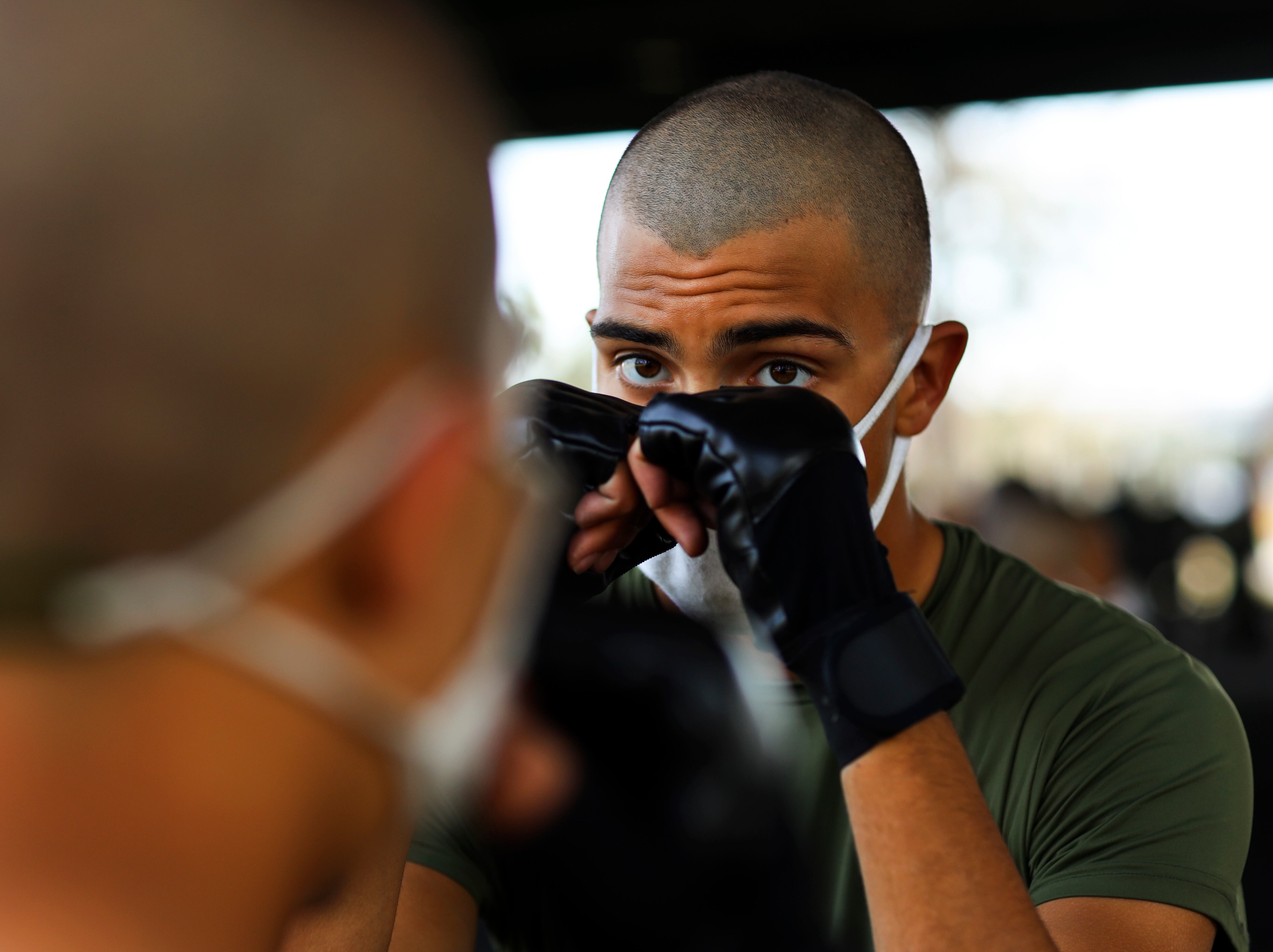From spaced out racks to a two-week pretraining quarantine, the Marine Corps has had to adapt what boot camp and officer candidates school look like in order to keep making new Marines through the COVID-19 pandemic.
While off-base quarantine locations have put some financial strain on the Corps, it also has played a role in all but eliminating other platoon-wide illnesses that happened at boot camp long before the potentially deadly virus arrived, Marine Corps Commandant Gen. David Berger said Wednesday.
“Typically, every officer candidate class, every recruit training class, gets some kind of crud in the first two weeks and it shuts them down,” Berger told lawmakers with the Senate Armed Services Committee.
The unexpected side benefits from these extra precautions have led the Corps to consider keeping the quarantine period even after the country emerges from the pandemic, Berger said.
RELATED

Pneumonia and other frustrating viruses often can spread quickly around boot camp once recruits all show up to one location ― also to a place that will push them to the brink physically and change their everyday eating and sleeping habits.
“Why would we not consider continuing that later on so that when training starts, everybody can train instead of half the squad bay being sick?” Berger said.
No decisions have been made on what boot camp will look like after the COVID-19 pandemic comes to an end, Capt. Sam Stephenson, a spokesman for the Marine Corps Training and Education Command, told Marine Corps Times.
“As a learning and adapting organization, we continue to refine our processes and will adopt the best practices that ensure the highest quality results,” Stephenson said in a November email.
“The development of any enduring ELT streamlining will be synchronized across processes and stakeholders such as Marine Corps Recruiting Command and Manpower and Reserve Affairs,” Stephenson added.
Keeping at least some of the procedures used to fight the spread of COVID-19 implemented is just common sense for Berger.
“Some of these measures we need to keep in place afterward,” Berger said.





